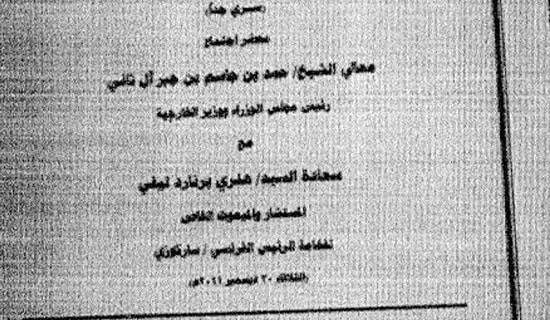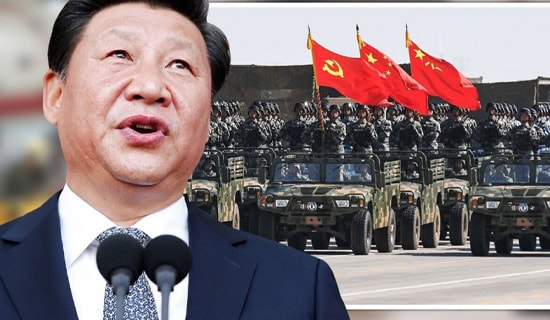The July 25, 2016 Arab League summit in the Mauritanian capital of Nouakchott, originally scheduled for two days, lasted a few hours, and only seven leaders showed up. Notably absent were two of the Arab world's most prominent leaders - Egyptian President 'Abd Al-Fattah Al-Sisi, and Saudi King Salman bin 'Abd Al-Aziz Al-Saud. As expected, no practical decisions were taken at the conference, and leaders steered clear of controversial topics. The summit's closing statement was very general and broke no new ground - it condemned Iran's interference in the affairs of Arab countries, supported political solutions in various Arab countries, backed the Palestinian cause, and called for the Arab ranks to unite to face the current challenges.
In addition to its short duration, and in addition to the fact that it took place several months later than the date originally scheduled in April 2016, the summit was also not held in its originally scheduled venue, Morocco, because that country had refused to host it "by royal edict " in protest against the organization's ineffectiveness in recent years. According to Morocco, "the Arab world is undergoing a difficult period, and now is the time for truth and honesty. The leaders of the Arab countries cannot once again present a harsh diagnosis of the reality of schisms and rifts... without providing decisive, collective answers to dealing with this situation..."[1]
The summit and its proceedings again demonstrated the fractiousness and disunity amongst Arab League members. Even the banners that Mauritania placed along the road leading from the airport to the convention site and at the site itself sparked controversy, because they included a map of Morocco without the Sahara and a map of Palestine in the 1967 borders rather than the customary map of "historic" Palestine.[2]
The Arab media also discussed the very need to convene an Arab League summit at this time as well the institution's inefficacy in recent years. Harsh criticism was voiced during and after the summit over the Arab League' years-long inability to offer solutions to the Arab world's problems, and there was also criticism of the dysfunction of Arab leaders, who do nothing to improve their citizens' situation.

Nouakchott street banners. Left, Palestine in the 1967
borders (source: Twitter.com/ajplusarabi, July 31, 2016); right, Morocco
without the Sahara (source: Badil.info, June 25, 2016)
Following are excerpts from the articles:
Al-Hayat Editor-In-Chief: The Arabs Grow Worse Every Year; The Term "Arab World" Evokes Either Mockery Or Sadness
Ghassan Charbel, editor-in-chief of the London-based Saudi daily Al-Hayat, said that it was difficult for him to write about the Arab League because of the sorry state of the Arab countries, which only deteriorates from one summit to the next. Calling on the Arabs to make hard choices and to keep up with progress and technology instead of pining for the bygone golden age of Islam and lagging behind other countries, he wrote: "... Every time an Arab summit is convened, it seems like the situation was not as dire during the previous summit, and that the year between the two has brought nothing but another opportunity to continue the [Arab world's] collapse and hasten the downslide.
"In recent years, I have had profound doubts regarding the meaning of expressions and terminology that we once considered clear cut and unequivocal. For instance, I no longer know what we mean when we say 'the Arab World.' Is this Arab World still alive and well, or is it an exhausted creature in a retirement home, spitting blood and waiting for death? I don't mean that the Arabs are on the verge of extinction, but I feel that use of the term 'Arab World' has become provocative, or evokes either mockery or sadness...
"I find writing about the [Arab] summit confusing. Has 'the Arab' failed in building a state, and in joining and reconciling with the [modern] age? And has failure pushed us to champion darkness and choose to clash with the world and with the modern [age]? I ponder the terrorism that meanders [from place to place]; I think about what will happen in years to come, and it frightens me. Will the world unite against us and view us as an 'evil empire'? Will it force us to change our garb and the suicidal tendencies and rejection of the other that flow through our veins?
"I am no pessimist, but the expression 'Arab national security' embarrasses me. I see a Tunisian blow himself up in an Iraqi mourner's tent. I see a Chechen kill a Syrian who supports [the Assad regime]. I see an Afghani kill a Syrian oppositionist. I see Iranian experts in the Abbasid capital [Baghdad] and the Umayyad capital [Damascus]. I see the 'Arab arena' studded with suicide bombers... and militias. [I see] the maps [showing the borders] that have collapsed... and the remnants of the armies.
"I am also confused by [the term] 'the Arab power of influence'' which will not even convince Fatah and Hamas to coexist as part of one system in order to salvage what is left of the land of Palestine and the central [Palestinian] cause. This power of influence is not enough to stop the humiliation of the Lebanese by leaving their decapitated country [without a president] on hold as conditions are formulated to appoint their 'savior.'
"I am no pessimist, but numbers are numbers. Between the Sharm Al-Sheikh summit [in March 2015] and the Nouakchott summit, the Arab world reached a new height in numbers of killed and refugees, and in rates of illiteracy, poverty, burned-out cities, car bombs, and suicide attackers.
SUPPORT OUR WORK

"How difficult it is to write about the Nouakchott summit. In fact, Arabs need a development workshop to compensate for the centuries they have lost, and must make painful, inescapable decisions in order to jump aboard the train of progress, hope, and stability. In vain do we avoid [paying] for these painful decisions, clinging to obsolete ideologies and sinking ships. [Our] coma has lasted a long time, and time is pitiless. In order for the Arabs to have a time, a place, and an existence left [in this world], they must bring their children to join these unstoppable technological revolutions. The keys to the future are in the world of Microsoft, not in the poetry of Al-Mutanabbi.[3] The lengthy slumber in the bed of the past, and the faith that the future depends on reviving past golden ages, have killed us.
"The train is always ahead of us. We are always late, and it travels on, leaving us behind to stab each other, destroy our cities, and dig graves. Then we fall asleep under the gold of the Qasidas[4] and history, with Al-Mutanabbi our only solace."[5]

Arabs
on the decline from "the Arab Summit" (Al-Ghad, Jordan, July 26, 2016)
Egyptian Columnist: The Moroccan King Was Right To Refuse To Host The Summit; The Arab League Has Been Useless Ever Since Its Establishment
In an article titled "When Will They Declare the Death of the Arab League" in the Egyptian daily Al-Ahram, columnist Ahmad 'Abd Al-Tawwab wrote that since its establishment, the Arab League could solve none of the Arabs' problems, either domestic or foreign, and praised the Moroccan king for his refusal to host the summit because of its uselessness. He wrote: "The Arabs are the only ones on Earth who have lived with a great mistake for over 70 years, and continue to repeat it every day without stopping, seriously assessing [the situation], and comparing the starting point to where we are now. I am talking about the Arab League.
"The motive for establishing the league in 1945 was the danger to Palestine posed by organized Jewish immigration. But Israel was established three years after [the Arab League]. Only a few years after that, the Palestinians reached their lowest point [of] schisms and internal war, and the league could not even mediate between the warring sides. Moreover, the condition of the Arab countries deteriorated to the current low point, and the disasters in Iraq, Syria, Yemen, and Libya are the jewel in the crown of the league's failure to do anything at all - to the point that the emissaries dispatched to find solutions [to crises] were foreigners from outside the Arab organization. It was also decisively proven that some league member states had conspired against sister states, so competitively that it became hostility, [developing] later into physical conflict and to alliances with clear historical enemies [against these other Arab League member states].
"We must recognize the wisdom of Moroccan King Mohamed VI, who refused to host the latest session of the league, [originally] scheduled for April... believing that it would be a chance to ratify the usual recommendations and deliver speeches giving a mistaken air of unity. Does any citizen in an Arab country feel that the Arab League is effective or influential? Do they notice its absence in any crisis? Do they remember its active role in any crisis? Do they expect it to take action vis-à-vis any of the many disasters in the region? Does any Arab country believe that without the league its situation would have been better? Or worse? Or that without the league, it could have solved any of its problems? Or that its problems would have escalated?"[6]

The
joke of "Arab Unity" (Al-Badil, Mauritania, February 28, 2016)
Lebanese Columnist To Arab Leaders: "Leave Us Alone, Because You Stink"
In a sarcastic article titled "You Stink,"[7] Amine Kammourieh, a columnist for the Lebanese daily Al-Nahar, called on Arab leaders to step down because they have done nothing to improve their own situation. He argued cynically that there is no need for Arab League summits, since the situation of the Arab world is excellent across the board: "Shortening the Mauritania summit to one day is perhaps the most important decision in the history of the Arab League. What's the use of meetings, conferences, and sessions when a two-day trip to Nouakchott is a waste of leaders' precious time and distracts them from their vital activity dealing with the everyday problems of their peoples, encouraging more intellectual and scientific achievements and glorious economic prosperity - activity which has led to our countries' surpassing of the superpowers in all fields.
"Why do the Arabs need a general Arab meeting when they already consult with and advise each other and everything runs properly? Arab lands are in Arab hands and are safe from any foreign intervention, and no one dares harm them thanks to Arab solidarity and the fortification [of the Arab land] against all those who covet it. Palestine is free; Syria prospers, and people from around the world flock there to relax; Iraq showers good and natural resources on all its neighbors; Yemen revels in the love of its residents and neighbors...
"The state of the Arab world is excellent. Our universities work miracles. Can Harvard, Cambridge, or the Sorbonne persuade even one student to die for a particular cause? No. [On the other hand,] the schools in our back alleys work miracles in this field. Every day they send dozens to meet the black-eyed virgins in the eternal gardens of Paradise. Our coffin factories operate around the clock. Our roses are irrigated with blood.
"[Arab leaders,] you have made us happy, raising up our heads until they detach from our necks, and you have assured us a glorious future. Thank you for all you have given us. We are happy with this, and we want no more.
"It is time you left us alone, because you stink."[8]
Endnotes:
[1] Al-Arabi Al-Jadid (London), February 19, 2016.
[2] Al-Shurouq (Morocco), July 25, 2016; Twitter.com/ajplusarabi, July 31, 2016.
[3] Abu Al-Tayyeb Al-Mutanabi (915-965 CE) - a classical Arab poet.
[4] Poetic Arabic odes, developed and perfected in the pre-Islamic period.
[5] Al-Hayat (London), July 25, 2016.
[6] Al-Ahram (Egypt), July 28, 2016.
[7] The title is a reference to a slogan used during popular protests in Lebanon in August 2015, during a garbage removal crisis in Beirut, which turned into protests against the Lebanese government.
[8] Al-Nahar (Lebanon), July 26, 2016.




